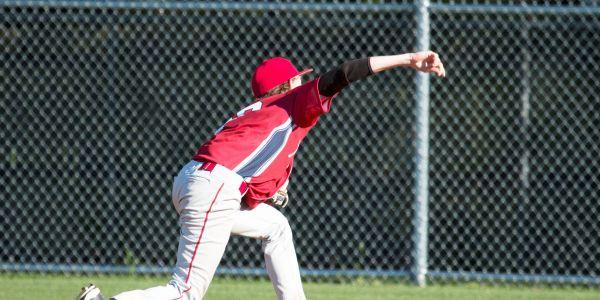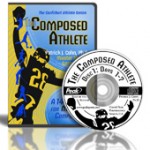
Focus on Mistakes to Learn From Them
There is a fine line between recognizing and dwelling on mistakes.
You need to be able to identify miscues or missed opportunities from a competition to learn from them.
The key is how long you think about those mistakes.
Let’s look at the following scenario. Bob G. is a freshman collegiate soccer player. In his first game as a starter, Bob shot wide on three scoring opportunities.
After the game, Bob was visibly angry and frustrated. All night, Bob constantly replayed his missed opportunities. Even during the following week of practice, he couldn’t shed the memories of his misses. He felt down throughout the week, and his confidence suffered as a result.
In this instance, Bob was so focused on his mistakes that he could not think about possible solutions. When you ruminate about mistakes, your confidence has nowhere to go but downward. With less confidence, you will usually under perform in your next game.
The better option is to see mistakes as learning opportunities. In this instance, Bob still recognizes his mistakes but quickly transitions to correcting them. He may still be mad about the missed scoring chances, but he is committed to correcting those mistakes before the next game.
For example, when Bob is thinking/ evaluating his performance, he could examine potential causes of shooting the ball wide: being more focused on the defenders closing on him or becoming anxious or fearful of missing in the first place.
After identifying the problem, Bob can create a plan to improve his focus, reaction time, or shot angles.
When you find and apply the feedback from a game or competition, you can actually improve your confidence.
Learning from mistakes takes some introspection. You can gain feedback by asking yourself the following questions:
* What was the situation?
* What went wrong?
* What is the lesson?
* What can I do differently?
* How will I work to improve this area?
When you follow a specific process for dealing with mistakes after each competition, you prioritize improvement, safeguard your confidence, and lessen the emotional impact of mistakes.
Washington Commanders quarterback Sam Howell was drafted in the fifth round of the 2022 NFL Draft and quickly proved he has what it takes to be an NFL starter.
Howell has steadily improved his game by learning from his mistakes to better prepare for the next football game.
HOWELL: “I think you try to learn from the mistakes as quickly as possible, but at the same time, you don’t wanna overreact just because you have another game coming up that Sunday, like you said. So, there’s always some key points that you wanna focus on coming out of certain games, but then after you kind of get past that, you start working towards the next opponent.”
Elite athletes are elite not because they don’t make mistakes but because they learn from them. In other words, elite athletes see mistakes as a vehicle to learn and grow as an athlete.
Using mistakes as a vehicle to grow your game requires a solution-based mindset.
A helpful strategy to find solutions is to create a feedback system that you can use after every competition to evaluate your performance objectively.
Try creating a standardized form to identify mistakes and then create a 3-step plan to improve your game to minimize mistakes in the next game.
An objective evaluation routine for each competition moves you away from dwelling on mistakes to finding solutions.
Related Sports Psychology Articles
- How to Benefit From Mistakes in Competition
- 3 Ways to Quickly Rebound from Mistakes
- How to Stay Composed When You Make Mistakes
*Subscribe to The Sports Psychology Podcast on iTunes
*Subscribe to The Sports Psychology Podcast on Spotify
Download a free sports psychology report to improve your mental game!
Learn more about our one-on-one mental game coaching.
The Composed Athlete

“The Composed Athlete” is presented on 80-minute Audio Programs with a 70-page step-by-step workbook that guides you through the program each day. It’s a complete system for conditioning your mind to have maximum composure in competition.
“The Composed Athlete” was developed for any level coach, parent, or junior to professional athlete who wants to improve performance and gain a competitive edge. It does not matter if you are a fledgling junior athlete; or a seasoned professional, plagued with distractions; or you just wanting to learn how to improve your composure…
